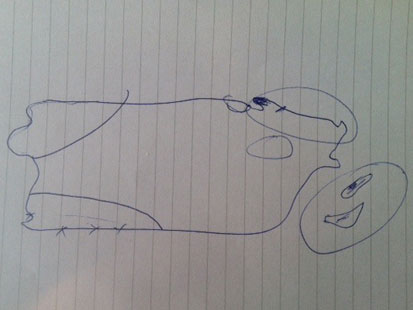Puerto Rican Governor Frustrated By Statehood Discussion
The governor said jobs and crime are more important issues.
Aug. 1, 2013— -- Puerto Rico's political leaders sparred over whether the island should become a state during an Energy and Natural Resources committee hearing on Thursday morning.
The island's governor, Alejandro García Padilla, said he supports a version of the current Commonwealth status.
In a meeting with reporters after the hearing he said he favors an "enhanced" commonwealth status that would give Puerto Rico "maximum autonomy" while cementing a permanent relationship with the United States. He'd like Congress and Puerto Rico to agree on which federal laws should apply to Puerto Rico and which should not. He would oppose laws that would be "harmful" to the island's development, he said, but didn't go into further detail.
Voters on the island were asked during a plebiscite in November 2012 whether they favor the current status or not. If they did not, they were asked to choose between either statehood or total independence.
García Padilla encouraged voters to leave the question blank because a commonwealth option was not included as an alternative. He called the vote a political "game" during Thursday's hearing.
More than 450,000 voters heeded his advice, leaving the White House to declare the results of that vote unclear.
While García Padilla was less than straightforward during the hearing about exactly what enhanced commonwealth status would entail, Pedro Pierluisi, the resident commissioner of Puerto Rico and president of the island's New Progressive Party, was far more direct.
The statehood-supporter said voters clearly chose that option in November and that territory status served as a root cause of the island's economic issues. Puerto Rico has been plagued by high unemployment and crime.
Rubén Berríos, president of the Puerto Rican Independence Party, said that in some ways, statehood is contrary to U.S. interests and could end badly for Puerto Ricans. Regardless, he said, the people deserve a decision soon because it's been an unresolved issue for decades.
But at the meeting with reporters following the hearing, García Padilla expressed frustration that the hearing had centered around statehood and said there are more important things to focus on, like unemployment, crime and green energy.
While many have criticized the island's high unemployment rate and the exodus of young people leaving in search of job opportunities and to escape high crime rates, he pointed out that more people have entered the workforce in the past few months and that crime has dropped.
Puerto Rico's people suffered high unemployment and high crime rates under the pro-statehood party that held power for four year before he took office in January of this year, he said.
The governor touted green jobs as a good way to get more people back to work. Former President Bill Clinton spoke on the island recently about creating green jobs and Garcia Padilla said he's glad to be working with the Clinton Foundation on clean energy projects like putting solar panels on rooftops.
Issues like the economy and education "are the issues on Puerto Ricans' minds," he said, not statehood.
Young voters also care about things like marriage equality and García Padilla said when asked that his government has worked hard to give LGBT people protections in the workplace and access to benefits.
When pressed that some people want full marriage equality, he said some people will always be unhappy with the current situation when it comes to rights but that he still opposes gay marriage.
"It's never enough when we're talking about rights," he said.
But the discussion wasn't all about heavy topics. When García Padilla found out the author of this article has yet to travel to Puerto Rico, he asked to borrow a pen and notepad and animatedly drew a map of the island (photo below for your viewing pleasure).

Old San Juan (the dot on the upper right side) is a must, he said, as is the El Yunque forest to the east. And the beaches that face the Caribbean Sea are gorgeous, he said. Much better than those along the Atlantic. If you like to surf, he added, go for the Northwest coast. And Vieques is always worth a side trip. But really, people should just see the whole island, he said, because it's only about 100 miles wide and less than 40 long.
And there you have it, travel advice from the leader of the island himself.